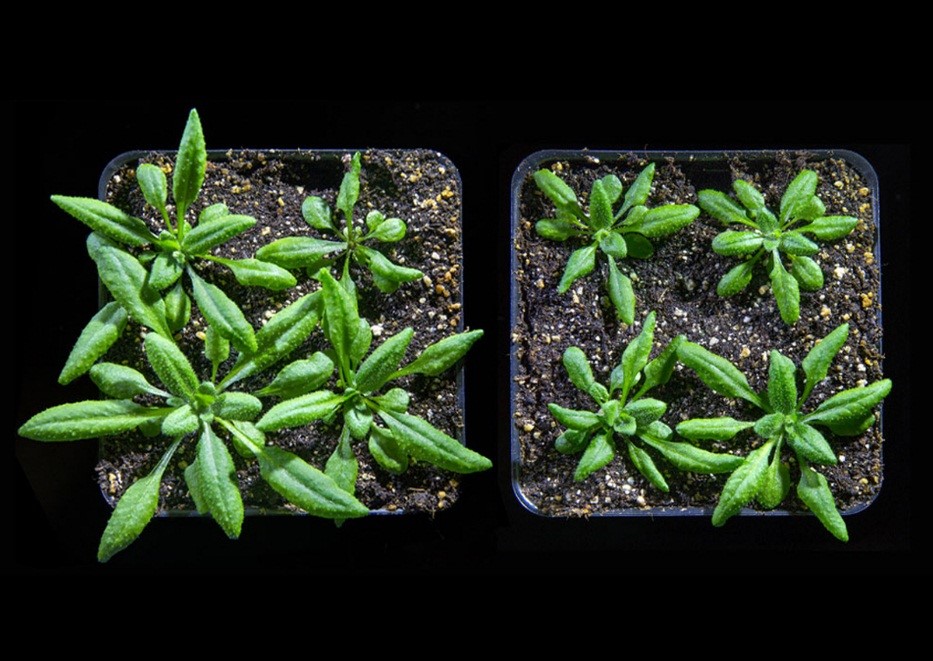Brookhaven Lab studies using the fast-growing plant Arabidopsis (above) are helping to identify strategies for getting plants to produce and accumulate more oil. The goal is to transfer these approaches to energy crop plants such as energycane and Miscanthus. Photo Source: Brookhaven National Laboratory
A research team from the U.S. Department of Energy's Brookhaven National Laboratory (BNL) has developed a plant that produces more oil by manipulating the availability of sugar for oil synthesis.
Led by BNL's John Shanklin, the team used Arabidopsis leaves to mimic the stem cells of plants such as energycane and Miscanthus. The work is part of a University of Illinois-led biosystems design project to engineer two of the most productive American biomass crops—energycane and Miscanthus—to accumulate an abundant and sustainable supply of oil for biodiesel, biojet fuel, and bioproducts. This project builds on earlier work that showed that simultaneously impairing the export of sugar from leaves while blocking starch synthesis diverts sugars produced by photosynthesis towards fatty acid and oil synthesis.
Sanket Anaokar, a research associate at BNL said that the novel aspect of their work was to minimize sugar accumulation in a large cellular storage compartment called the vacuole. Their approach was to block sugar movement into the vacuole and maximize its export. They found that when these genetic manipulations were made to plants that are also blocked in starch synthesis, the cell channeled the extra sugar into oil.
(Source: Crop Biotech Update, International Service for Acquisition of Agri-Biotech Applications. www.isaaa.org)




